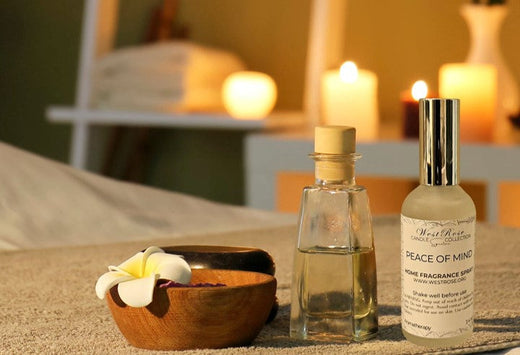
Aromatherapy 101
What is aromatherapy exactly?? Aromatherapy is the practice of using fragrances, typically derived from essential oils, to treat conditions and enhance one's wellness. As a practice, aromatherapy has existed for hundreds of years, often used for relaxation, stress-reduction, and treating various physical ailments. While research has been inconclusive on the impact of aromatherapy on certain illnesses, data does suggest a benefit in using aromatherapy and essential oils to regulate the nervous system, which can positively impact mood, reduce anxiety, and improve sleep. There is also evidence to support the use of aromatherapy for improving attention and memory, and even reducing nausea.

What is essential oil?

Essential oil is a highly concentrated plant-derived liquid, produced by pressing or steaming various plant parts, such as bark, leaves, and flowers, to extract the plant's aromatic oil. Essential oils have a long history of being used for medicinal purposes and continue to be used in alternative medicine and aromatherapy, as essential oil from each plant is said to have different effects on our brains and bodies. While research suggests certain benefits to their use, experts do advise that they be used as directed to avoid any potential adverse reactions. For example, essential oils should not be ingested and should only have direct contact with the skin when diluted as directed.
How does aromatherapy work?

When exposed to fragrances and essential oils, our bodies absorb the scent molecules in two ways: by smell (e.g., smelling a fragrant room spray) or through skin absorption (e.g., rubbing a lotion containing essential oils into the skin).
When inhaled, the molecules enter the olfactory nerve at the nose and travel to the limbic system, the part of the brain responsible for our "fight or flight" response. The limbic system is also home to both the amygdala and hippocampus, the emotional and memory centers of the brain. Scent molecules can interact with these two brain structures to induce emotional reactions and to also elicit various memory responses. In fact, research has shown smell to be the most powerful human sense in triggering emotions and memories because of its deep connection to these two parts of the brain. For instance, citrus oil molecules may interact with the amygdala to boost mood and increase energy, while lavender can promote a sense of calm and relaxation. Additionally, the smell of vanilla may stir up positive associations (e.g., cookies baking in the oven) from memories stored in the hippocampus, while also creating a sense of calm.
Using specific fragrances and essential oils to intentionally elicit positive or calming responses from our brain and nervous system is the primary goal of aromatherapy, and can be a healthy part of a self-care routine to support overall emotional wellness.
Who should NOT use aromatherapy?
While our products are designed to offer a safe and non-toxic aromatherapy experience, it’s important to note that they may not be suitable for everyone. Individuals with chronic respiratory conditions, such as COPD or asthma, may experience irritation when inhaling essential oils, which are a fundamental component of most aromatherapy offerings. Furthermore, some people may have allergies to these oils, leading to symptoms such as coughing or irritation in the nose or throat.
It’s also crucial to note that products containing essential oils may not be appropriate for use around pets or very young children, especially if used in high concentration or in a small space for a prolonged period of time, as their sensitivities can be heightened. Therefore, it's important to be mindful of any existing allergies or sensitivities before using aromatherapy, including West Rose products. Providing a safe and enjoyable aromatherapy experience is our top priority, and understanding you and your family's health considerations and consulting a healthcare provider, if appropriate, may be an important part of that process.
DISCLAIMER: Products and information provided on this site are not intended to treat or prevent any medical or mental health diagnoses. Be sure to contact a health professional if you are experiencing a condition that requires medical or mental health consultation.
